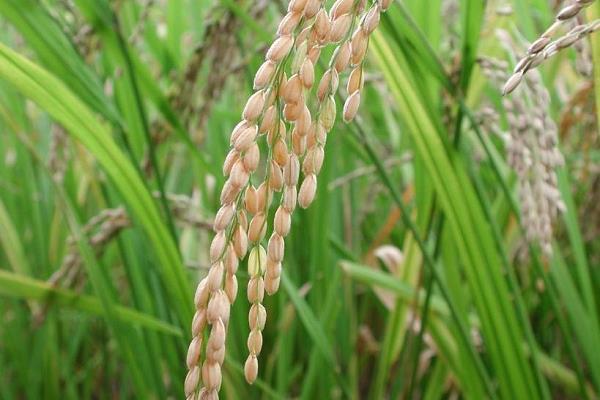
Ghana is close to an agreement with the International Monetary Fund (IMF) on a fiscal assistance programme.
Ghana’s president says he wants an IMF programme to facilitate a deeper transformation of the economy.
The country is also optimistic that its 2015 budget can take that deal into account, deputy finance minister Cassiel Ato Forson told Reuters on Thursday.
Forson spoke after a second round of talks with the fund in Washington. He said a third and decisive round would start in Ghana in the first week of November.
Any deal would help the West African country restore its fiscal balance amid problems such as quickening inflation, a stubborn budget deficit and a currency that has fallen sharply this year.
President John Mahama says the country also wants an IMF programme to facilitate a deeper transformation of an economy prone to fiscal imbalances because it is driven by the export of raw commodities and widespread imports.
Those fiscal challenges have taken some of the shine off Ghana, a country lauded by investors for its political stability and sustained rapid growth based on exports of gold, oil and cocoa.
“We had a very fruitful engagement with the fund and we are more or less at a convergent point. From this, I can say that we are close to reaching an agreement,” Forson said, adding that the aim was for a three-year programme starting in January.
The IMF, meanwhile, said in a statement it had a “productive dialogue” with Ghana and made progress on identifying economic and policy reforms that could form the basis of a fund-supported programme.
Forson said the programme would include balance of payments support but said it was too early to give a figure.
There was no word on what economists say is the most contentious issue in a putative deal, namely how and to what extent the government will reduce spending on public sector wages.
Ballooning wages were the main cause of a sharp increase in spending in the 2012 election year, which sent the fiscal deficit soaring to 11.8 per cent of GDP and contributed to a downgrade of Ghana’s sovereign rating.
Morgan Stanley said in a research note this week that some investors are concerned about the government’s ability to maintain fiscal discipline in the run-up to the next election in 2016.
Ghana’s statistics service on Wednesday trimmed its economic growth forecast for 2014 to 6.9 per cent after a slowdown in second-quarter growth and said growth in 2013 stood at 7.6 per cent.
Economists said the projection for 2014 showed that the country’s macroeconomic instability was starting to impact the economy.
The 2014 forecast still puts Ghana well above the IMF forecast for sub-Saharan African growth of 5.1 per cent this year.
FRENCH VERSION
Le Ghana est proche d’un accord avec le Fonds monétaire international (FMI) sur un programme d’aide financière.
Le président du Ghana dit qu’il veut un programme du FMI pour faciliter une transformation profonde de l’économie.
Le pays est également optimiste que son budget 2015 peut prendre en compte que beaucoup, vice-ministre des finances Cassiel Ato Forson a déclaré à Reuters jeudi.
Forson a parlé après une deuxième série de pourparlers avec le fonds à Washington. Il a dit un troisième tour décisif commencerait au Ghana dans la première semaine de Novembre.
Tout accord aiderait le pays ouest-africain rétablir son équilibre budgétaire au milieu des problèmes tels que l’inflation s’accélère, un déficit budgétaire têtu et une monnaie qui a fortement baissé cette année.
Président John Mahama dit que le pays veut aussi un programme du FMI pour faciliter une transformation profonde de l’économie sujette à des déséquilibres budgétaires, car il est entraîné par l’exportation de produits bruts et les importations à grande échelle.
Ces défis financiers ont pris une partie de l’éclat au large du Ghana, un pays salué par les investisseurs pour sa stabilité politique et la croissance rapide et soutenue fondée sur l’exportation de l’or, du pétrole et du cacao.
“Nous avons eu un engagement très fructueuse avec le fonds et nous sommes plus ou moins à un point de convergence. De cela, je peux dire que nous sommes proches d’un accord “, a déclaré Forson, ajoutant que l’objectif était pour un programme de trois ans à compter de Janvier.
Le FMI, quant à lui, a déclaré dans un communiqué qu’il avait un “dialogue constructif” avec le Ghana et a fait des progrès sur l’identification des réformes économiques et politiques qui pourraient former la base d’un programme appuyé par le FMI.
Forson a déclaré que le programme comprendrait appui à la balance des paiements, mais a dit qu’il était trop tôt pour donner un chiffre.
Il n’y avait aucun mot sur ce que les économistes disent est la question la plus controversée dans une affaire présumée, à savoir comment et dans quelle mesure le gouvernement de réduire les dépenses sur les salaires du secteur public.
salaires montgolfière étaient la principale cause d’une forte augmentation des dépenses dans l’année électorale 2012, qui a envoyé le déficit budgétaire flambée de 11,8 pour cent du PIB et a contribué à la dégradation de la note souveraine du Ghana.
Morgan Stanley a déclaré dans une note de recherche cette semaine que certains investisseurs sont préoccupés par la capacité du gouvernement à maintenir la discipline budgétaire dans la perspective de la prochaine élection en 2016.
Statistiques de service Ghana mercredi réduit ses prévisions de croissance économique pour 2014 à 6,9 pour cent après un ralentissement de la croissance au deuxième trimestre et indiqué que la croissance en 2013 se situait à 7,6 pour cent.
Selon les économistes, la projection pour 2014 a montré que l’instabilité macro-économique du pays commençait à affecter l’économie.
Les prévisions 2014 met encore Ghana dessus de l’estimation du FMI pour la croissance en Afrique sub-saharienne de 5,1 pour cent cette année.


